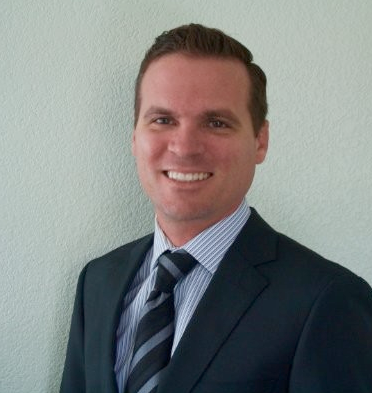Alumni – Where Are They Now? Scott McDonnell
By Lynn McCain | September 13 2018 Scott McDonnell / MCP Graduate Student Class of 2013When Scott McDonnell, PhD, was considering graduate programs, he wanted a program that had close and direct connections to a major academic medical center. One that would allow for both opportunities for translational research on campus and firsthand clinical perspectives of the diseases being studied. He found the Michigan Medicine health system to be such a system and the Molecular and Cellular Pathology graduate program to be the ideal fit.
Scott McDonnell / MCP Graduate Student Class of 2013When Scott McDonnell, PhD, was considering graduate programs, he wanted a program that had close and direct connections to a major academic medical center. One that would allow for both opportunities for translational research on campus and firsthand clinical perspectives of the diseases being studied. He found the Michigan Medicine health system to be such a system and the Molecular and Cellular Pathology graduate program to be the ideal fit.
McDonnell’s career goal coming into the MCP program was to become a scientist working in industry. To reach this goal, he had to carefully select the right mentor. “I chose my mentor based on our shared research interests and her ability to provide me a well-rounded graduate school experience,” explained McDonnell. McDonnell’s mentor, Dr. Megan Lim, was the Director of Hematopathology in the Department of Pathology and had an active laboratory studying the signaling mechanisms that lead to NPM-ALK induced oncogenesis in anaplastic large cell lymphoma. “Having a mentor that was a practicing pathologist allowed me opportunities to shadow her in the pathology service and closely witness the diagnosis and therapeutic strategies for patients. These experiences outside the everyday lab work made my graduate research much more meaningful.”
The quality and the extensive variety of science conducted at the University of Michigan and within the MCP program played a major role in McDonnell’s development as an independent scientist. “Being an industry scientist, it is important to have a breadth of knowledge and expertise that is applicable beyond the narrow focus of our specific PhD work. Being immersed in the MCP department gave me exposure to a wide variety of biomedical research as well as a diverse field of experts who approach science in unique and varying ways,” said McDonnell. “I realize now that the biggest value gained from my experience in the MCP program was not elucidating a novel cellular signaling mechanism driving cancer, but learning to think like a scientist.”
After graduation in 2013, McDonnell completed a post-doctoral fellowship at Novartis in San Diego. From there, he held his first PhD-level position as a Senior Scientist at Pfizer, where he developed and contributed to a variety of oncology drug discovery programs. He is currently a scientist at Ferring Pharmaceuticals, where he leads several drug discovery projects while growing in his role as a scientific leader.
McDonnell advises students who are interested in pursuing a graduate program that they need to carefully consider whom they select as their mentor. “Choosing a mentor is the most important decision of any new graduate student. Your graduate school experience is heavily shaped by the mentor you choose,” he said. Finding the correct fit from a personality factor is extremely important. “Speak to other graduate students and get an idea of how happy (or unhappy) they are in the lab. How long does it take on average for students to graduate out of the lab? Do they come out with high impact papers?” There are two types of labs, in McDonnell’s experience: Labs run by new faculty and those run by more senior faculty. “Labs run by new faculty are often faster paced and can be more demanding. You are much more likely to receive more one-on-one guidance and may be working with smaller groups. Often, the success of the graduate student in these labs comes as a direct reflection of the success of the faculty mentor, leading to a more high-risk, high-reward scenario,” he explains. “Conversely, working in an established lab may mean greater resources, bigger teams and a larger diversity of projects. It also means you will see much less of your mentor making independent problem solving and self-motivation paramount traits for personal success.”
 ON THE COVER
ON THE COVER
 ON THE COVER
ON THE COVER
 ON THE COVER
ON THE COVER
 ON THE COVER
ON THE COVER
 ON THE COVER
ON THE COVER
 ON THE COVER
ON THE COVER
 ON THE COVER
ON THE COVER
 ON THE COVER
ON THE COVER
 ON THE COVER
ON THE COVER
 ON THE COVER
ON THE COVER
